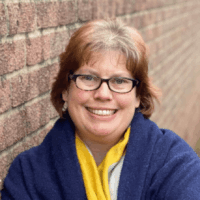
Sadiq Khan’s new book is a powerful call to action
This week high temperatures and local emissions triggered the Mayor of London to issue a high air pollution alert. This is the second such alert already this year, yet Khan’s ultra-low emission zone continues to be a source of scepticism and debate in the capital – especially in outer London.
Since his mayoralty began, Sadiq has been outspoken about the dangers of air pollution for Londoners and his commitments to effective climate action. This culminated in the recent publication of his part memoir, part guidebook: Breathe: Tackling the Climate Emergency.
Khan begins his journey by candidly conceding what scant knowledge he had about air pollution. It took two significant events to change his perspective: his unexpected diagnosis of asthma at age 43 and the tragic story of Ella Roberta Addo-Kissi-Debrah, which has led to the starting stages of Ella's Law.
These experiences compelled Khan to delve into the issue of air pollution and he emerges as a self-proclaimed electric bike evangelist, championing the cause since 2014.
One of the book's central themes is why air pollution isn't discussed more prominently. Khan attributes this neglect to its invisible nature. Nothing is easier to turn a blind eye to than something you cannot see in the first place.
Crucially, he highlights how Westminster tends to set targets without implementing adequate policies to achieve them. That same issue was pulled sharply into focus by the recent Defra consultation on a revised Air Quality Strategy, emphasising the need for more funding, education and control at a local level.
Khan's personal journey also reflects a common sentiment among many regarding environmental issues. He acknowledges that, for a long time, it felt like a distant problem - both geographically and temporally.
Furthermore, Khan draws attention to the social disparities inherent in the air pollution picture. While we all breathe, we don't all breathe the same air. Lower income families are more likely to live in highly congested areas and near major road networks.
Throughout the book, London’s Mayor provides valuable insights into the progress made in his city in terms of combating air pollution. The implementation of the Ultra Low Emission Zone (ULEZ) in Central London has resulted in a nearly 50 percent reduction in toxic air pollution. Additionally, since Khan took office, he claims there has been a remarkable 94 percent reduction in the number of people living in areas with illegal levels of nitrogen dioxide.
These statistics are impressive and demonstrate tangible progress toward meeting legal pollution limits by 2025—an outcome that seemed distant when Khan first became mayor.
However, there is still a long way to go. While Khan effectively communicates the impact of climate change on vulnerable communities, he falls short in addressing the actual health benefits and changes resulting from his initiatives.
For instance, how has improved air quality affected public health? Has it contributed to economic growth through reduced workdays lost? Has life expectancy increased in certain areas? These questions remain largely unanswered, highlighting the siloed approach government (local, regional and central) takes to tackling air pollution.
Dirty air affects the number of GPs an area needs just as much as it should affect investment in local, clean public transport. A joined up and data led approach is required more than ever.

Allied to this point, Khan lays bare the absurd centralisation of UK government finances. Unlike most of Europe, three quarters public expenditure is directly controlled by central government. With that in mind, the ambitions shown by local government leaders, for example in the UK100 network for fighting climate change, is all the more commendable.
Breathe: Tackling the Climate Emergency provides a unique perspective, with the Mayor’s personal journey intersecting with his journey in political office. A memoir come manifesto, it is a powerful call to action for politicians and the public alike, showing the problem to be acute but resolvable.
If there is a central message, it is that cleaning up the air we all breathe cannot be the responsibility of one part of government or even of one country. Indeed, since there is such a clear intersection between reducing particulate emissions and reducing climate warming GHG gases, this is a global endeavour.
The C40 network of mayors spanning from Austin, Texas, to Yokoham, Japan, is a shining example of the joined up approach this enormous challenge requires. Khan has made London a leading member of that network, and his book is well worth a read.

Kate Barnard is Chief Executive of Enjoy the Air, an organisation working to demonstrate the cause and effect of air pollution to healthcare authorities.











